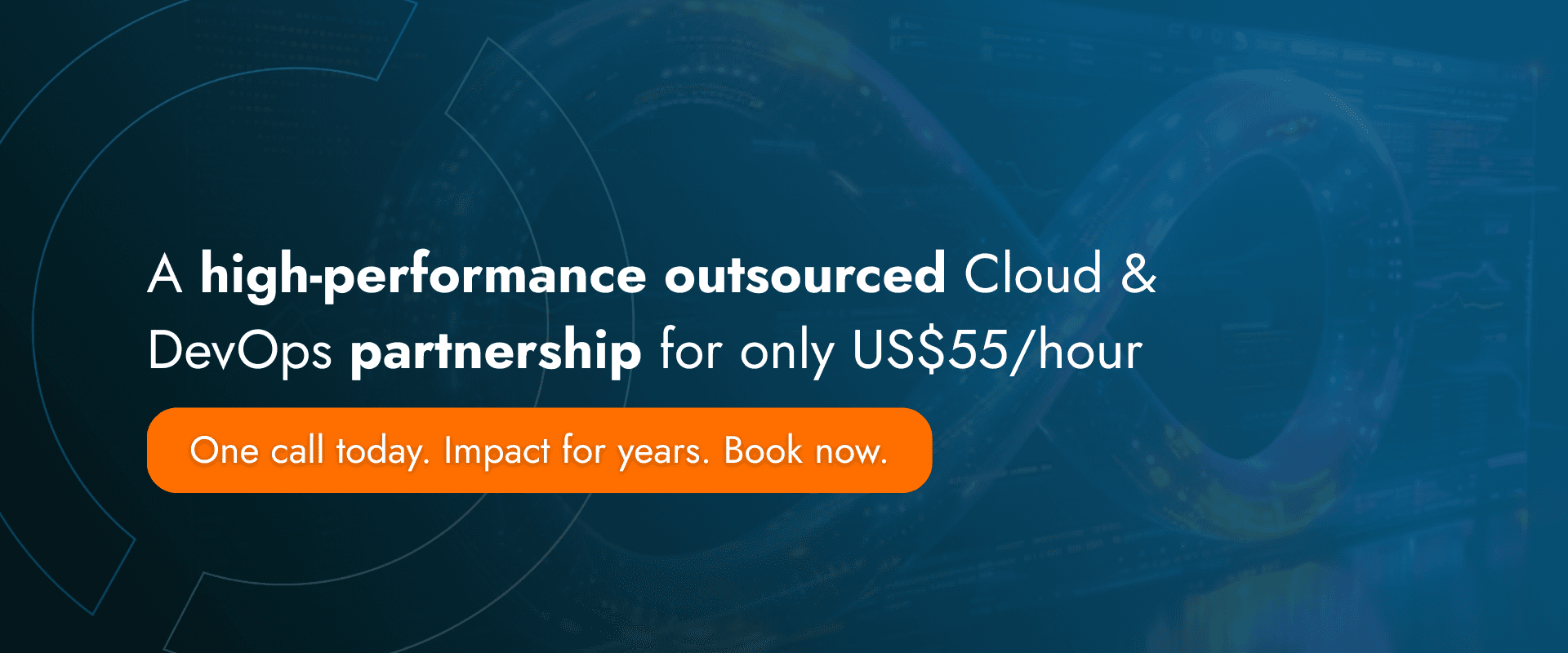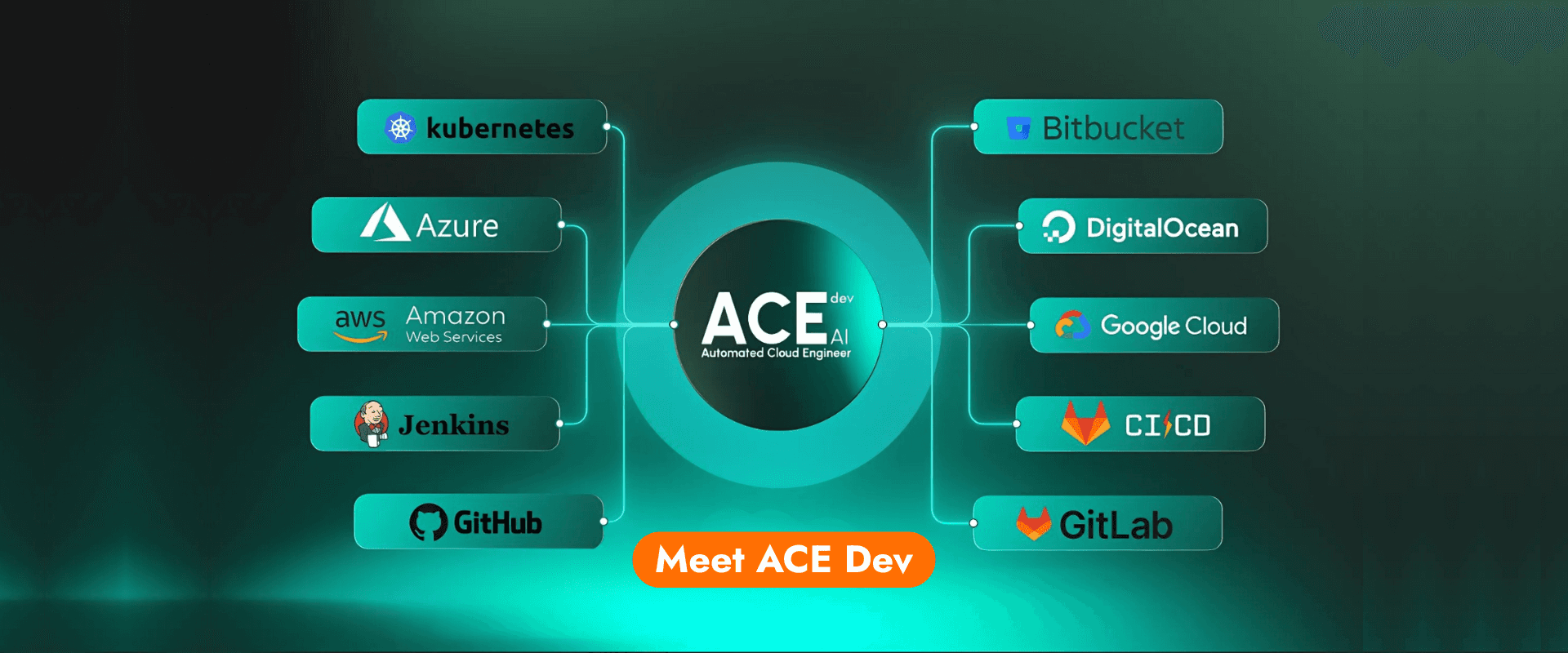
Cloud & DevOps outsourcing: what works, what fails and how to get it right
Cloud & DevOps Engineering
What you’ll find in this article: a practical, experience-based guide to outsourcing Cloud and DevOps without losing control, quality, or momentum. We break down what actually works, what commonly fails, and how to choose the right partner, based on real delivery lessons from the field.
Why read this article: if you are a CTO, founder, or tech lead looking to scale faster, close reliability gaps, or reduce operational overhead without hiring an oversized internal team, this article helps you approach Cloud & DevOps outsourcing with clarity, realism, and strategic intent.
Cloud & DevOps outsourcing is a strategic approach where specialized external teams manage specific cloud and DevOps layers to improve speed, reliability, and scalability without transferring product or architectural ownership.
Outsourcing Cloud and DevOps is often misunderstood. Many still see it as a shortcut or a cost-cutting tactic. In reality, when done well, outsourcing is a strategic move to gain speed, resilience, and access to specialized expertise exactly where your internal team needs leverage.
As cloud environments grow more complex, keeping everything in-house can quickly turn into a bottleneck. CI/CD reliability, cloud migrations, observability, security, and platform operations all demand deep, constantly evolving expertise. Outsourcing the right layers at the right time can unlock momentum without sacrificing ownership.
The challenge is not whether to outsource, but what to outsource, when, and to whom. Below, we break down what consistently works in Cloud & DevOps outsourcing, what usually fails, and how to get it right.
What works in Cloud & DevOps outsourcing
What works in Cloud & DevOps outsourcing consistently comes down to five principles: outcome-focused engagements, embedded DevOps expertise, automation-first execution, continuous knowledge transfer, and strategic layering instead of full offload.
Outcome-focused engagements
The most successful outsourcing models are not built around hours logged. They are built around outcomes delivered.
Forward-looking CTOs structure engagements around measurable goals: improving deployment frequency, reducing downtime, increasing observability, strengthening security posture, or cutting cloud waste.
What works is aligning SLAs with business impact, using metrics such as uptime, recovery time, CI/CD velocity, and cost efficiency instead of generic activity reports.
Embedded DevOps expertise
Strong DevOps partners do more than configure tools. They co-design systems. The best teams embed themselves into your engineering culture, understand your roadmap, document decisions rigorously, and proactively suggest improvements.
They act as an extension of your team rather than a ticket-driven contractor. What works is a partner that shares context, communicates clearly, and contributes strategically.
Automation-first mindset
Manual work does not scale. High-performing DevOps partners treat automation as the default, not an upgrade.
This includes Infrastructure as Code, CI/CD pipelines, autoscaling, monitoring, security scanning, and increasingly, GenAI-powered automation. At EZOps Cloud, for example, ACE Dev operates as an Automated Cloud Engineer that reduces operational noise and repetitive work.
What works is automation that increases resilience and scalability without locking you into a vendor-specific setup.
Knowledge transfer by default
Good outsourcing builds internal capability instead of dependency. Effective partners document everything, train your team, and share playbooks, onboarding materials, and architectural rationale.
You should be more capable at the end of the engagement than at the beginning. What works is transparency and knowledge-sharing baked into the process.
Strategic layering, not full offload
Outsourcing works best when you offload specific layers, such as IaC, Kubernetes operations, observability, or CI/CD, while keeping product development and core business logic in-house.
This balance preserves strategic ownership while adding operational leverage. What works is outsourcing layers, not your entire stack.

What fails in Cloud & DevOps outsourcing
Most Cloud & DevOps outsourcing failures are not technical. They stem from unclear scope, lack of continuity, poor integration with product teams, and decisions driven by price instead of value.
Vague briefs and undefined scope
“Just handle DevOps” is one of the fastest paths to failure. Without clear responsibilities, priorities, and context, outputs become misaligned. Strong partnerships start with co-designed scope, shared expectations, and an understanding of how collaboration will evolve.
What fails are ambiguous scopes, missing technical direction, and partnerships without a shared vision.
Treating outsourcing as a one-time fix
DevOps is not a checklist. It is a continuous practice. Short-term engagements aimed at “fixing CI” or “stabilizing infra” often fail because, without continuity, systems drift back to old patterns.
What fails is treating outsourcing as a quick patch instead of a strategic investment.
Isolating the DevOps function
When outsourced DevOps operates in a silo, disconnected from product and roadmap, friction is inevitable.
Successful outsourcing requires embedded collaboration. External engineers must sync with internal teams, share rituals, and understand user impact. Otherwise, infrastructure may function technically while slowing down releases. What fails are weak communication loops and fragmented ownership.
Hiring on price, not value
Low-cost vendors often lack repeatable processes, automation assets, or internal tooling. They depend heavily on client direction and bring little innovation.
What fails are labor-only vendors that add capacity but no leverage.
Signs you are ready to outsource Cloud or DevOps
You are ready to outsource Cloud or DevOps when operational complexity starts slowing delivery instead of enabling it. You may be ready for a partner if:
Engineers spend excessive time fixing pipelines or cloud issues.
Product delivery is delayed due to infrastructure gaps.
Your cloud environment has outgrown your SRE capacity.
Cloud costs are rising without clear visibility.
You need 24/7 operations without building a global internal team.
If several of these resonate, outsourcing is likely a strategic next step.
How to choose the right DevOps partner
Proven track record
Ask for concrete evidence: projects delivered, hours logged, platforms supported. At EZOps Cloud, we have delivered over 700 projects, logged more than 150,000 hours, and work across AWS, Azure, GCP, Kubernetes, and modern CI/CD ecosystems.
Internal tools and IP
Strong partners invest in internal leverage. Automation templates, DevOps blueprints, and proprietary tools such as ACE Dev improve speed, consistency, and quality.
Transparent onboarding and communication
Look for structured onboarding, async updates, clear points of contact, and strong documentation practices. Transparency builds trust.
Outcome alignment
Your partner should care about developer velocity, release stability, and cost efficiency, not just tickets closed.
The EZOps Cloud model: DevOps-as-a-Service that works
Our model is built to deliver leverage, not just manpower:
Flexible scope that scales up or down.
Predictable cost through hour-based or outcome-driven billing.
24/7 support with global coverage.
Smarter automation with ACE Dev reducing manual effort.
True partnership embedded into your team.
It is not outsourcing for distance. It is DevOps reinforcement for high-performance teams.

Final thoughts: don’t wait for the fire
Outsourcing Cloud and DevOps does not mean losing control. Done right, it increases clarity, resilience, and momentum. For tech leaders, it is often one of the highest-leverage decisions available.
If you are ready to explore DevOps-as-a-Service with a partner that prioritizes outcomes, transparency, and long-term value, let’s talk.

EZOps Cloud delivers secure and efficient Cloud and DevOps solutions worldwide, backed by a proven track record and a team of real experts dedicated to your growth, making us a top choice in the field.
EZOps Cloud: Cloud and DevOps merging expertise and innovation



